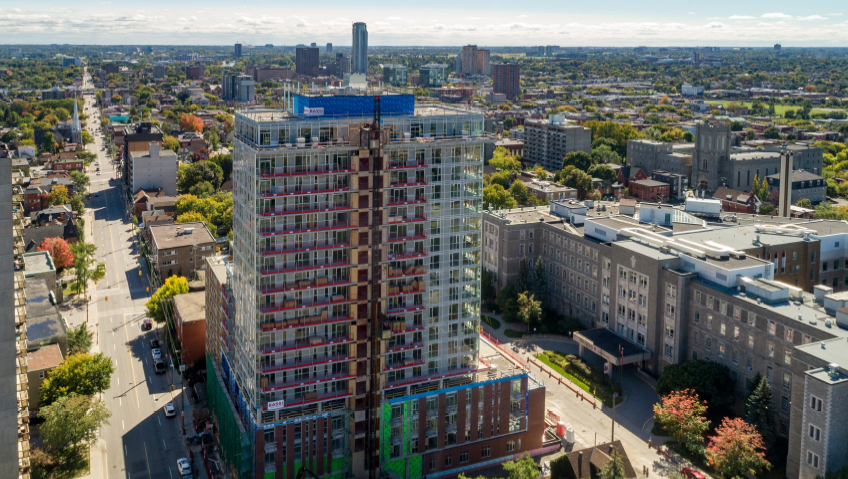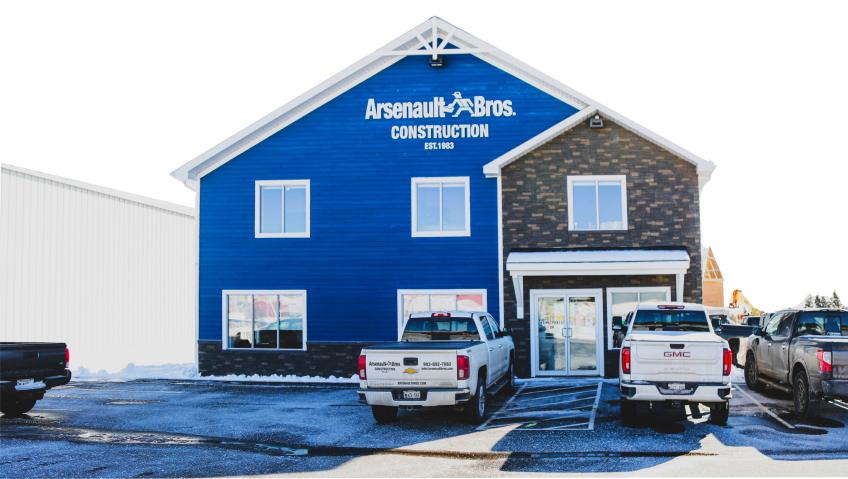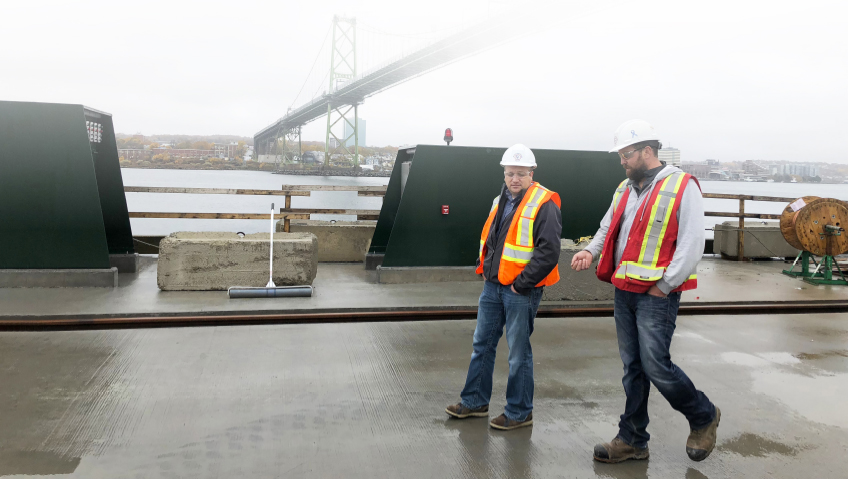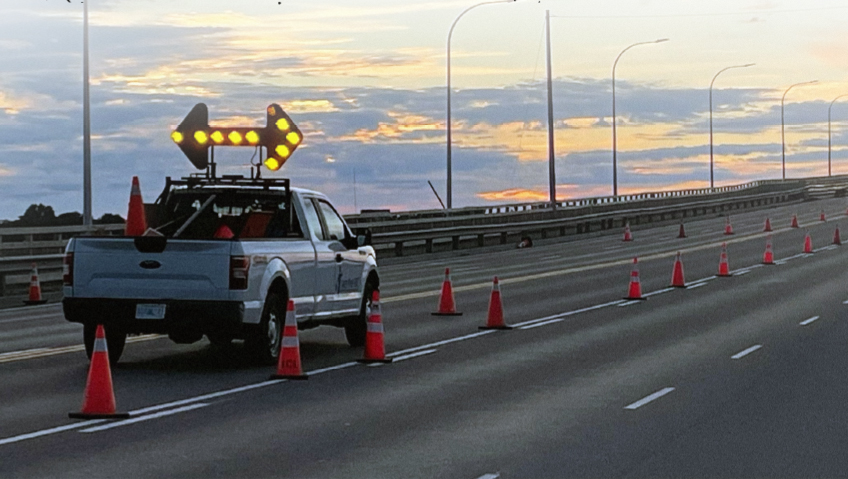Next year, Bassi Construction Ltd. will mark its sixtieth anniversary in business. Since its founding in 1963, the Ottawa-based firm has become a vertically-integrated operation with a full range of construction-related services. Its continued success is a testament to hard work, dedication, and putting the customer first.
“We’re focusing on the same thing we’ve always focused on for the past sixty years, which is customer satisfaction and continued success,” states Daniel Pereira, Director of Tenant Fit-ups and Renovations.
The company serves clients from “Kingston to Petawawa to Cornwall. That little triangle of Eastern Ontario is predominately where we work. We do occasionally cross over the border into Gatineau, Quebec,” he continues.
Commercial work, which can involve offices and retail, and institutional work, which can involve hospitals and universities, bring in the most revenue at present. The company also serves the residential, industrial, and multi-family markets.
The firm has three main divisions: tenant fit-up and renovations, building restoration, and environmental services and disaster recovery.
The tenant fit-up and renovation division covers general contracting and construction management. The latter involves managing on-site operations and serving as a liaison between the trades and the client. Construction management assignments typically involve “larger-scale projects—usually over $5 million.”
Services rendered by this division include estimating, scheduling, budgeting, site safety, design-build, computer-assisted design, site management, risk management, and environmental work. Anything involving drywall, flooring, electrical, or mechanical is usually subcontracted out.
Building restoration involves concrete forming, finishing, placing, and restoration. This division excels at structural repairs, cladding restoration, waterproofing, parking garage restoration, building envelope repair, caulking, and masonry. For the most part, these services are done in-house. “On the building restoration side, we pretty much self-perform everything,” says Pereira, noting that the company has “multiple crews.”
Most services performed by the environmental services and disaster recovery division are also self-performed. This segment deals with burst pipes, drain and sewage back-ups, wet or flooded areas, water-damaged floors (including carpets, concrete, and hardwood), mould inspection/testing/remediation, biohazard cleanup, emergency roof repair, air duct cleaning, demolition, rebuilding, and more. Working closely with insurance companies, staff members provide a twenty-four-hour emergency hotline and speedy response time when contacted.
“A lot of the workers we have within that division are fully trained for any type of [hazardous material] they might run into—asbestos, silica, lead,” he says. “We’re fully trained and certified to handle pretty much anything in the event of a disaster.”
With its comprehensive capabilities, Bassi can provide start-to-finish service. “We’re vertically integrated. We’ve been involved at the inception of a project before there’s any physical construction happening. We give feedback to the engineers, to the consultants, architects, and ultimately, the client. We pride ourselves in adding value to our customers, to make a project cost-efficient and feasible,” Pereira states.
Highlights of the company’s portfolio of work include a big project at 473 Albert Street in Ottawa that involved gutting a former commercial site and transforming it into a residential building. Another high-profile project took place at 99 Bank Street, Ottawa. This twenty-two-week initiative involved demolition work and the construction of new office space for a high-profile accounting firm. “It was a good project,” recalls Pereira, of the 99 Bank Street assignment.
Winning such work is even more impressive given Bassi’s very humble origins. It traces its roots to 1957 when Mario Bassi immigrated to Canada and began working as a mason in Ottawa. A few years later, after establishing himself in his field, he decided to launch the company that bears his name. Control eventually passed to Mario’s son, John Bassi, as the company continued to expand.
In late 2016, Bassi partnered with Mosaic Capital Corporation, an investment company, to further strengthen the company’s growth. The continued success of Bassi is built on its focus on personal relationships and excellent service.
“A lot of our customers have been repeat clients from Mario Bassi’s time,” states Pereira, adding, “We find the same repeat customers coming to us because we ensure a high level of customer satisfaction. Trust goes a long way. Repeat clients are really our key to success. Our slogan is, ‘Built on a tradition of trust’ so that goes hand in hand with factors for our success.”
Bassi Construction is bonded up to $125 million, and all of the company’s employees are insured and licensed by the Workplace Safety and Insurance Board of Ontario.
The firm has met stringent requirements established by the Institute of Inspection, Cleaning, and Restoration (IICRC), a Vancouver-based non-profit group that sets industry standards. It currently has IICRC certification for several positions including water restoration technician, fire restoration technician, and applied structural drying technician.
Like every other company in North America, Bassi had to cope with the unexpected scourge of COVID-19. The company lost some work in the commercial sector due to the virus.
“COVID was obviously a bit of a hurdle for the past two years,” he says, adding that the company was fortunate in “being able to pivot towards institutional work, which we didn’t have five to ten years ago. We have a good footprint now in the market here in Ottawa. It definitely kept us going through COVID.”
When the pandemic struck in early 2020, Bassi Construction became one of the first in Ottawa to adopt physical distancing rules. Sanitation efforts were enhanced, COVID self-assessment tests were implemented for employees starting their shifts, and masks were introduced. The firm did not lay any employees off, although some staff took reduced hours.
“We had a cohort of people working half-time. Everybody was on board. We all understood the financial stress this disease was bringing to the industry,” notes Pereira. As a result, “Ontario’s Ministry of Labour identified early on that Bassi’s protocols were industry leading and have used them as an example for other construction companies to follow.”
The company has roughly 150 employees, up from around 130 to 140 this time last year. When it comes to new hires, it prefers hard workers with a construction background and a dedication to doing their best. It helps if potential hires are familiar with smartphones, laptops, and other electronic devices. “Over the last twenty years, there have been significant advancements in technology in the construction industry. Emails and streamlined electronic platforms and software—you can address issues and problems much quicker now with your project team,” he says.
Bassi Construction tries to instil a safety-conscious mindset in everyone it hires. It is implementing tenets of the Certificate of Recognition (COR) program—an initiative run by an Ontario organization called the Infrastructure Health and Safety Association (IHSA). The COR program involves strict health and safety management protocols. Some Ontario municipalities have established COR registration as a prerequisite for contractors who want to bid on projects. The company’s goal is to reduce or even eliminate workplace injuries.
“It’s difficult to get [zero injuries] in construction—accidents will always happen but how we mitigate risk and control hazards is key. Educating employees is the biggest contributing factor to minimizing lost time at work due to injuries,” notes Pereira.
He describes the corporate culture as family-like, befitting its heritage as a family-run company. This family ethos extends to involvement in community and charitable events. The company has made donations for a children’s hospital initiative designed to replace communal toys for kids in recovery with single-use activity books as shared hospital toys have become a no-no, due to fears of COVID transmission. The company also supports food banks, and at a special Easter fundraising event earlier this year, staff who donated non-perishable items were invited to toss an egg at the company director of their choice.
The firm also strongly advocates for raising the number of women working in construction. “Promoting women within our company as well is a big priority for us,” he adds.
COVID fallout remains an ongoing challenge that “affected the entire industry. Right now, we’re still feeling the after-effects, especially in the supply chain. Cost-of-material increases over the past two years have definitely been above the norm when it comes to wood and steel. Materials that used to take six to twelve weeks turnaround are now taking twenty to twenty-six weeks to receive,” he says.
For the next few years, the plan is to maintain evenly-paced growth, with a focus on Ontario markets and stellar customer service.
“Growth is great. Exponential growth is scary, especially if it’s not controlled. We know what works. We’ve done very well to last this long. I don’t see myself going Canada-wide within the next five years. We want to keep delivering excellence to the core group of clients we have. Word of mouth gets out quick. Our client base will slowly expand, and we’re perfectly fine with that,” states Pereira.






